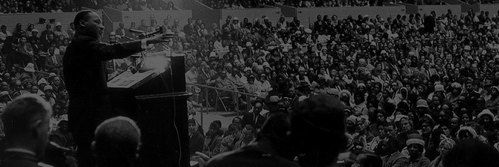Reflections on Martin Luther King Jr. Day, Pt 2

In my first post I encouraged those who have never read Dr. Martin Luther King Jr. in his own words to read “Letter from Birmingham Jail.”
In this post I’d like to give 8 reflections on this letter and why I think it is so incredibly relevant for the church today.
In this post I’d like to give 8 reflections on this letter and why I think it is so incredibly relevant for the church today.
- This letter puts into historical context the amount of resistance Dr. King experienced in his work. Much of this resistance came from official government sources (see for instance, COINTELPRO). But this resistance came not only from government sources, but also from religious leaders, especially white Christian leaders (see this article from Russell Moore for further discussion). When the Church should have lifted a voice to stand for justice, far too many stood against it.
- King undermines the passivity that exists in so many hearts today by reminding us that “injustice anywhere is a threat to justice everywhere.” Christ calls us to something greater than caring for ourselves alone, He calls His people to “act justly, love mercy, and walk humbly with your God” (Micah 6:8). This call is for the people of God to represent and fight for the values of God and His Kingdom, regardless of whether or not that injustice happens to someone with different skin color.
- King calls the church leaders to try to understand the “underlying causes” of racial tension in our country. He describes in Birmingham a “white power structure” that had left African-Americans there with no alternative but to fight for their rights. Too often in conversations and discussions about race in America there is a superficiality. It is absolutely essential for us to understand the underlying causes of so much pain and suffering and oppression that has taken place. King points to the segregation of the city, the police brutality, the unjust treatment of African-Americans in the legal system, and the unsolved bombings of African-American homes and churches.
- In the direct action that Dr. King and the other leaders took in Birmingham they were appealing with their own bodies to the conscience of the local and national community. There was no doubt in their minds about the righteousness of their cause, and they appealed to the consciences of so many doubtful white men and women across the country. It is hard to watch these videos and see these pictures, but we must. This is our country only 50 years ago. May our consciences be softened to this hatred.
- Dr. King reminds us in this letter about privilege, and the fact that “History is the long and tragic story of the fact that privileged groups seldom give up their privilege voluntarily.” We don’t think enough about power, privilege, and influence in the church. For a helpful discussion of the topic, start with this resource from Andy Crouch: Playing God: Redeeming the Gift of Power
- The Imago Dei strikes at the heart of King’s analysis. In the discussion on just and unjust laws Dr. King points out that what makes a law just or unjust is in how much it corresponds to the moral law of God, and because of that “any law that uplifts human personality is just.”
- Dr. King’s analysis of the “white moderate” should cause many of us to stop in our tracks. In this analysis King sees the white moderate as one who speaks about “waiting,” but “justice delayed is justice denied.” Time, according to Dr. King, is not something that inevitably leads to justice, but must be harnessed by godly men to fight for that which matters. The white moderate is one who is “more devoted to ‘order’ than to justice; who prefers a negative peace which is the absence of tension to the positive peace which is the presence of justice.” In that same vein “lukewarm acceptance is much more bewildering than outright rejection.”
- Finally, what is so compelling to me about Dr. King’s letter is his deep and profound love for Christ, and how he sees how Christ is out to radically transform the Church into a countercultural community declaring the love, grace, and justice of the God we worship. King calls upon the church not to be the “thermometer” which simply reflects the values and temperature of the society around it, but the “thermostat” that influences and transforms the culture for the sake of the gospel and the glory of Christ. And to that I say a hearty, amen!

